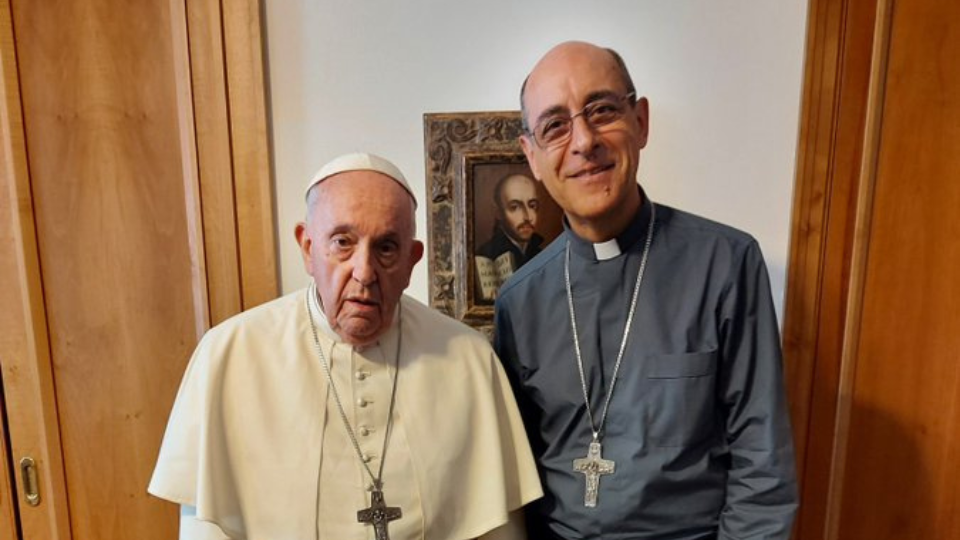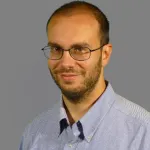
In a significant move within the Vatican, Pope Francis has named Archbishop Victor Fernandez as the Prefect of the Congregation for the Doctrine of the Faith, replacing Cardinal Luis Ladaria, who is now 78 years old. However, what has attracted more attention than the appointment itself is the letter accompanying it, written in Spanish, in which the Pope asks his trusted theologian to move away from the idea of sanctioning ideas and instead focus on "looking at" the faith.
In his letter to Archbishop Fernandez, Pope Francis emphasizes that the purpose of the prefecture is to "safeguard the teaching" that makes faith the reason for our hope. He laments the fact that in the past, the congregation "resorted to immoral methods, where the pursuit of possible doctrinal errors prevailed over the promotion of theological knowledge."
The Pope urges Fernandez to approach his role in a "different way" and highlights his academic career. The appointment is accompanied by an impressive list of books and articles, almost as if to justify Pope Francis' choice. The Pontifical Catholic University of Argentina, where Fernandez served as rector, is particularly noteworthy. It is worth mentioning that Cardinal Bergoglio, now Pope Francis, fought for Fernandez's appointment as rector against the opposition of the Congregation for Catholic Education, whose secretary, Archbishop Brugués, was never made a cardinal by Francis despite subsequently becoming the Librarian of the Holy Roman Church.
Furthermore, the Pope highlights Fernandez's pastoral career and emphasizes that to fully grasp the significance of his new role, he must understand that it involves "enhancing the intelligence and transmission of faith in the service of evangelization." The Pope's citations all come from the programmatic documents of his pontificate, such as Evangelii Gaudium, Gaudete et Exsultate, and Laudato Si.
Drawing from these documents, Pope Francis asserts that theology should consider any theological conception that ultimately questions the omnipotence of God and His mercy as inadequate. Fernandez's task, therefore, is to ensure that the congregation's documents and others "have adequate theological support, are consistent with the rich heritage of perennial Church teaching, and sometimes incorporate recent magisterial teachings." As for disciplinary matters, the Pope notes that there is a "specific section with highly competent professionals" for handling them, although he acknowledges its special relationship with the issue of the abuse of minors. Hence, Archbishop Fernandez's role will precisely be to "look at the faith."
Fernandez is Pope Francis' trusted theologian, as evident from his previous appointments, which include making him an archbishop in one of the early decisions of his pontificate when he was still the rector of the Pontifical Catholic University of Argentina. Fernandez has also been involved in various sessions of the Synods on the Family.
Born in 1962 and ordained as a priest in 1986, Fernandez served as the Parish Priest of Santa Teresita in Río Cuarto (Córdoba) from 1993 to 2000. He was the founder and director of the Lay Formation Institute and the Jesus Buen Pastor Formation Center in the same city. In his diocese, he also worked as a seminary formator, Director of Ecumenism, and Director of Catechesis.
The Holy See Press Office notes that Fernandez participated in the Fifth General Conference of the Latin American Bishops' Conference (Aparecida) in 2007 as a representative priest from Argentina. He subsequently became a member of the drafting group for the conference's final document. From 2008 to 2009, he served as the Dean of the Faculty of Theology at the Pontifical Catholic University of Argentina and President of the Argentine Theological Society. On May 13, 2013, Pope Francis appointed him Archbishop. He participated as a member in the Synods of Bishops in 2014 and 2015 on the family, and was part of the drafting groups for these synods.
Since 2018, Fernandez has been the Archbishop of La Plata and has served as a member of the Pontifical Council for Culture and a Consultant to the Congregation for Catholic Education. Currently, he is a member of the Dicastery for Culture and Education. The Vatican bulletin highlights his extensive scholarly contributions, with over 300 publications, many of which have been translated into multiple languages. These writings demonstrate a strong biblical foundation and a consistent effort to engage theology with culture, evangelization, spirituality, and social issues.
With this appointment, Pope Francis completes the reorganization of the leadership of the Congregation for the Doctrine of the Faith. The congregation underwent reforms by Pope Francis, leading to the establishment of two sections: a disciplinary section and a doctrinal section, each with its respective secretary. Monsignor Joseph Kennedy serves as the Secretary for the disciplinary section, while Monsignor Armando Matteo serves as the Secretary for the doctrinal section. Archbishop Morandi, the former secretary, was appointed as the Bishop of Modena, and Monsignor Matteo Visioli, the former undersecretary, returned to diocesan clergy.

Andrea Gagliarducci is an Italian journalist for Catholic News Agency and Vatican analyst for ACI Stampa. He is a contributor to the National Catholic Register.








